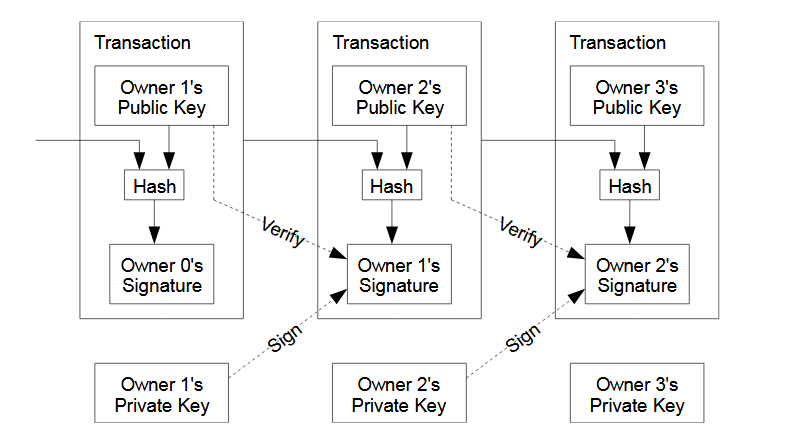Digital signatures in Bitcoin
The Bitcoin whitepaper describes an electronic coin as a chain of digital signatures. These digital signatures confer ownership rights over the coins held in any given script, and can be used as a record of ownership to trace ownership back through the history of the ledger.
A digital signature isn't merely a message signed using a given keypair, but is a link to an identity. The European Union legislation on Digital Signatures states that signatures correspond to “data in electronic form which are attached to or logically associated with other electronic data and which serve as a method of authentication”.
In this way, Bitcoins can be exchanged using many different signature types.
Elliptical Curve Digital Signature Algorithm (ECDSA)
Elliptic Curve Digital Signature Algorithm is the most commonly used signature type in Bitcoin. It makes use of the elliptic curve keypairs used to calculate the public keys referenced in Bitcoin addresses to generate secure signatures from a given message hash.
Using Bitcoin Script, it is possible to create novel scripts using ECD signatures, including the use of R-Puzzles.
There have also been practical implementations of Threshold Signatures in Bitcoin wallets and libraries which extend Elliptic Curve signatures to enable multiple parties to participate in the creation of a signature created from an ephemeral private key.
Rabin Signatures
To counter a push for the insertion of opcodes to evaluate data from outside the Bitcoin ledger, researchers at nChain developed a method of validating Rabin signatures in Bitcoin script. These signatures can allow for data collected outside the BSV ledger to be evaluated and signed allowing oracle functionality within Bitcoin transactions.
